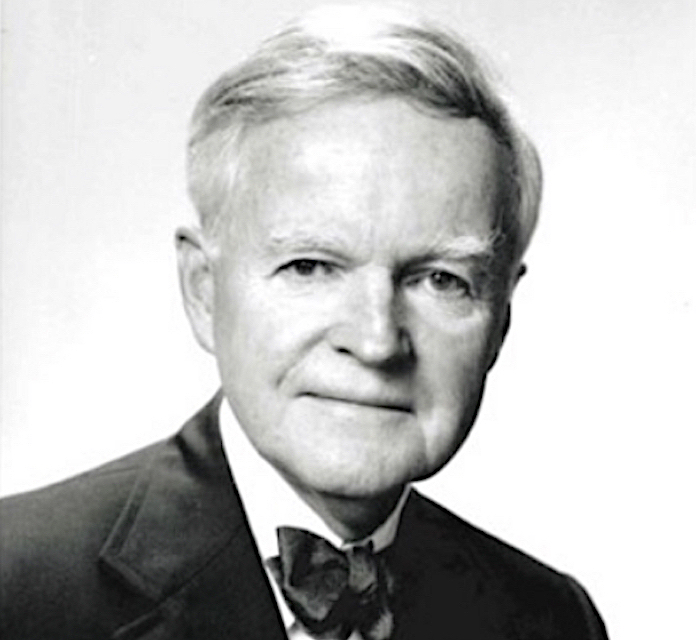The Enduring Impact of Allan Edgar Strand, Jr.
Allan Edgar Strand, Jr. lived a life defined by integrity, service, and an unwavering dedication to uplifting others. Born in Greensboro, North Carolina, in 1931, he grew up as the eldest son of Allan and Catharine Strand who instilled in him the virtues of discipline and compassion that would later define his life. Strand’s path was shaped by his love of learning, sportsmanship, and a steadfast adherence to his faith, inspired by the prophet Micah: “To act justly, to love faithfulness, and to walk humbly with his God.”
Early Years & Education
Strand’s early life in Greensboro was marked by academic and athletic excellence. At the Darlington School and later Davidson College, his love for tennis flourished. He went on to claim two North Carolina and one Tennessee state championships, as well as a national title at the U.S. Air Defense tournament in Fort Meade, Maryland. Strand’s excellence on the court earned him an opportunity as a tennis professional at the prestigious Merion Cricket Club in Philadelphia, where he once bested Wimbledon champion Maureen Connolly. “Last week, I was in Philadelphia and got beat by some pro that nobody ever heard of!” she later told The New York Times. Strand’s legacy in sports extended beyond simply competing. In 1957, he helped integrate Greensboro’s tennis courts by inviting George Simkins, a talented African American player, to play with him.
A Life of Service
Strand’s dedication to service began with his time in the Army, where he worked as a radar acquisition operator on the Nike missile system, later earning a commission in Naval Intelligence and retiring as a Commander. A graduate of Westminster Theological Seminary, Strand initially served as a Presbyterian minister but found his true calling in education. With a Doctorate in Education from the University of Tennessee, he taught English and Spanish at the Darlington School and Memphis University School. Strand went on to lead several prestigious institutions, including Anniston Academy (now The Donoho School), the Lovett School in Atlanta, and Newark Academy in New Jersey.
At Lovett, during the height of the Civil Rights Movement, Strand championed integration, diversifying the student body and faculty. His courageous leadership during this tumultuous period transformed Lovett into a premier institution, paving the way for similar efforts at Newark Academy, where he served as headmaster for 17 years. Strand’s influence extended to his roles as President of the Mid-South, Southern, and New Jersey Associations of Independent Schools and the Country Day Headmaster’s Association. He also co-founded St. Philip’s Academy, a preparatory school for inner-city youth in Newark.
Stewardship of the Algernon Sydney Sullivan Foundation
In 1996, Strand was named President of the Algernon Sydney Sullivan Foundation, succeeding William Bardusch, Jr. His tenure began with a clear-eyed vision to refine the Foundation’s mission and expand its impact. As detailed in the Foundation’s minutes from a May 7, 1997 meeting, Strand led efforts to refocus grants on financial aid for deserving students at small private colleges in the South. This strategic shift ensured that the Foundation’s resources were directed toward fostering the values of service and integrity embodied by its namesakes, Algernon Sydney Sullivan and Mary Mildred Sullivan.
During that same meeting, the Foundation resolved to discontinue token support for large national organizations like the American Red Cross, whose substantial budgets no longer required Foundation aid. Instead, the board approved grants to endow scholarships in memory of Algernon Sydney Sullivan at selected institutions, including Rollins College in Florida and George Peabody College in Tennessee. Strand’s vision for permanent endowments ensured a lasting legacy of financial aid for students meeting the Foundation’s criteria.
Strategic Growth and Modernization
Strand’s presidency was also characterized by strategic growth and modernization. On May 19, 1998, the board approved relocating the Foundation’s administrative offices to Oxford, Mississippi, facilitated by legal counsel Steven McDavid, whom Strand later appointed as Secretary and Assistant Treasurer. This move centralized operations in the Southeast United States and enabled the Foundation to develop a closer relationship with its network of colleges and universities.
In 2000, as the world warily anticipated the arrival of the new millennium, often referred to as Y2K, the Foundation launched a comprehensive review of its grant allocations. The board, under Strand’s leadership, examined whether to reduce or eliminate funding for schools with large endowments exceeding $150 million. While the decision was tabled for future discussion, the initiative marked a shift toward prioritizing institutions with limited resources and greater financial need.
Strand’s focus on transparency and accountability also led to the creation of an audit committee in 2005 and the adoption of an Investment Policy Statement in 2006. These measures provided structured oversight of the Foundation’s financial management and ensured alignment with its mission.
During this time, the board also debated the possibility of accepting external donations and bequests to bolster the Foundation’s resources. In 2003, a trustee raised the question of whether the Foundation was positioned to accept financial gifts. Following extensive discussions, the board reached a consensus that the Foundation should prepare documentation to allow interested individuals and organizations to make contributions. This decision marked a significant milestone, as it opened new avenues for financial support while maintaining the Foundation’s mission-driven focus. By 2005, draft documents outlining donation guidelines were in place, though the board decided not to actively solicit donations, focusing instead on accepting unrestricted gifts aligned with its values.
Among Strand’s most notable initiatives may well have been the establishment of the Sullivan Foundation website, www.sullivanfdn.org, in 2004. This digital platform enhanced communication with grantee institutions and streamlined administrative processes. Trustees praised the website as a transformative tool for managing the Foundation’s affairs and engaging its network of colleges.
Strand’s tenure also saw the expansion of the Sullivan Awards program to additional colleges, including Salem College and Guilford College. He emphasized to the Sullivan Award School’s leadership the importance of these awards being designated as the the highest honor bestowed upon their students and community members.
In the wake of the September 11, 2001, terrorist attacks in New York City and Washington, D.C., the Foundation’s board deliberated on its role in providing aid to affected communities. Ultimately, the trustees reaffirmed their commitment to education, focusing on financial aid for students as the best way to honor the values of service and community during such challenging times.
Building Long-Term Connections
Recognizing the potential of alumni engagement, Strand championed the creation of the Sullivan Foundation Alumni Association. This initiative began with detailed discussions in 2007, culminating in the first alumni dinner in 2010. The association’s mission was to foster a lifelong connection among Sullivan Award recipients and scholars, inspiring continued service and philanthropy.
Strand’s efforts also included the development of scholarship criteria emphasizing personal character. By 2007, the Foundation’s policies required scholarships to cover at least 50% of tuition and guaranteed multi-year awards for deserving students. The scholarships prioritized students with strong character, aligning with the Sullivans’ legacy.
The May 2008 board meeting at Rollins College marked another milestone. During a time of global economic uncertainty following the 2008 financial crisis, the Foundation approved a three-year plan for alumni engagement, including regional gatherings and an educational campaign to connect past and present Sullivan award recipients and scholars. These efforts strengthened ad grew the Foundation’s community.
Legacy and Retirement
Strand’s leadership of the Algernon Sydney Sullivan Foundation concluded in 2010. At his final board meeting, he was presented with a commemorative gift—the Sullivan medallions—in recognition of his transformative leadership. Under his stewardship, the Foundation had modernized its operations, expanded its reach, and deepened its commitment to fostering integrity and service.
Strand’s legacy endures in the lives of the students he mentored, the institutions he strengthened, and the communities he served. His dedication to the Foundation’s mission inspired countless individuals to lead lives of integrity and service.
Back to all News items.


